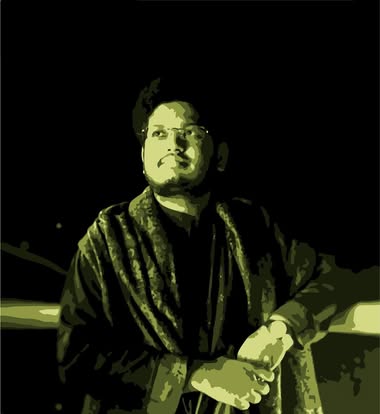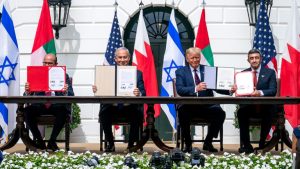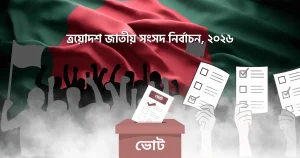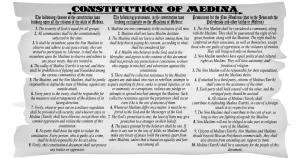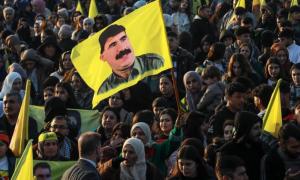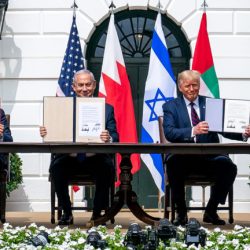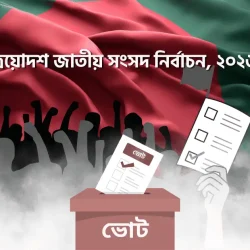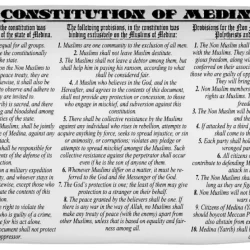Freedom of expression is a wonderful thing. It is an absolute right, or is it? One could argue that it’s unlimited, and everyone has the right to say whatever they please, without consequences. It allows us to express our opinions, challenge authority, and expose injustice. It also allows us to spread misinformation, incite violence, and harass others. But hey, who are we to judge? After all, everyone has the right to say whatever they want, no matter how harmful or hateful it is.
But let’s take a moment and examine the catastrophic effects that unlimited freedom of expression can bring. We live in a world where one person’s freedom of expression can lead to another’s emotional distress or even physical harm. The spread of false information and hate speech can create chaos and divisions in society. The question that arises is, how far can freedom of expression be exercised without violating the rights of others or inciting hatred and violence?
In this article, we will explore how far freedom of expression is appropriate, and why we should never limit it in any way. We will begin by defining the concept of freedom of expression and its importance for human rights and democracy. We will explore the legal and philosophical foundations of freedom of expression. We will also compare and contrast different approaches to regulating freedom of expression in different countries and contexts, including the US First Amendment, the European Convention on Human Rights, and laws against hate speech and defamation.
Furthermore, we will provide case studies of freedom of expression, including Charlie Hebdo, Holocaust denial, fake news, and controversial figures like Bill Maher and Salman Rushdie. We will examine the impact of the activities of Charlie Hebdo, Holocaust denial, fake news, and controversial figures like Bill Maher and Salman Rushdie on society and individuals. Because nothing bad ever happens when people say whatever they want, right? Let’s get into the discussion.
What is Freedom of expression?
Freedom of expression is one of the most fundamental and cherished human rights. It is the right to express one’s opinions and ideas without fear of censorship, retaliation, or legal sanction. Freedom of expression is essential for the development of a free and democratic society, as it allows people to participate in public debate, hold authorities accountable, and challenge injustice.
মত প্রকাশের স্বাধীনতা ও এর সীমারেখা
The concept of freedom of expression is not new. It has been recognized and defended by philosophers, activists, and legal scholars throughout history. However, the definition and scope of freedom of expression vary depending on the context and the source. For example, according to the Oxford English Dictionary, freedom of expression is “the power or right to express one’s opinions without censorship, restraint, or legal penalty.” According to John Stuart Mill, a 19th-century philosopher, and advocate of liberty, freedom of expression is “the liberty of expressing and publishing opinions… subject to no other restraint than that which is necessary for the security of society.” Mill argued that freedom of expression is essential for the discovery of truth and the advancement of knowledge. According to Article 19 of the Universal Declaration of Human Rights, a landmark document adopted by the United Nations in 1948, freedom of expression is “the right to freedom of opinion and expression; this right includes freedom to hold opinions without interference and to seek, receive and impart information and ideas through any media and regardless of frontiers.”
As these definitions show, freedom of expression is not an absolute or unlimited right. It is subject to certain restrictions and responsibilities that aim to balance the individual’s right to expression with the collective’s right to peace and security. It is important to balance the protection of this fundamental right with the responsibility to respect the dignity and rights of others. The main question that arises in this context is: how far can freedom of expression be exercised without violating the rights of others or inciting hatred and violence? This question has been debated for centuries and remains relevant today, as new technologies and social media platforms create new opportunities and challenges for free expression.
Legal and Philosophical Foundations of Freedom of Expression
Freedom of expression is one of the most fundamental and cherished human rights. It is essential for the development of individual personality, the pursuit of truth, the participation in democracy, and the respect for human dignity. However, freedom of expression is not an absolute right; it can be limited by law or social norms for various reasons, such as protecting national security, public order, health, morals, or the rights and reputations of others. Therefore, it is important to examine the legal and philosophical foundations of freedom of expression and to understand the principles and criteria that guide its regulation in different contexts.
The features of the Universal Declaration of Human Rights
One of the earliest and most influential sources of freedom of expression is Article 19 of the Universal Declaration of Human Rights (UDHR), adopted by the United Nations General Assembly in 1948. Article 19 states: “Everyone has the right to freedom of opinion and expression; this right includes freedom to hold opinions without interference and to seek, receive and impart information and ideas through any media and regardless of frontiers.” The UDHR was inspired by the values and experiences of the Second World War, and aimed to establish a common standard of human rights for all peoples and nations. Article 19 reflects the recognition that freedom of expression is indispensable for the realization of other human rights, such as the right to education, culture, religion, and political participation.
This right is also essential for the functioning of a democratic society, as it enables people to participate in public affairs, express dissent, exchange diverse views, and hold authorities accountable. However, freedom of expression is not an absolute right, and it may be subject to certain limitations and restrictions, such as those necessary to protect the rights and reputations of others, national security, public order, or public health or morals. Moreover, freedom of expression is not a monolithic concept, and it may vary depending on the historical, cultural, political, and legal contexts of different countries and regions.
The legal and philosophical foundations of freedom of expression can be traced back to the Enlightenment era when thinkers such as John Locke and John Stuart Mill challenged the traditional authority of the state and the church over individual conscience and reason.
John Locke was an English philosopher who advocated for natural rights, social contract theory, and religious tolerance. He argued that every person has a natural right to life, liberty, and property, which cannot be violated by any human authority without consent. He also defended the right of individuals to express their opinions freely, as long as they do not harm others or disturb the public peace. He wrote in his Letter Concerning Toleration (1689) that, the toleration of those that differ from others in matters of religion is so agreeable to the Gospel of Jesus Christ, and to the genuine reason of mankind, that it seems monstrous for men to be so blind as not to perceive the necessity and advantage of it in so clear a light.
What Does Mean By Human Rights?
Another influential source of freedom of expression is the liberal political philosophy of John Stuart Mill, who defended the principle of free speech in his famous essay On Liberty (1859). Mill argued that freedom of expression is necessary for three main reasons: first because it allows individuals to develop their faculties and capacities by expressing their opinions and learning from others; second, because it promotes the discovery and dissemination of truth by exposing false or partial opinions to public scrutiny and debate; and third because it fosters a tolerant and diverse society by respecting the diversity of opinions and lifestyles. Mill also proposed a criterion for limiting freedom of expression: the harm principle. According to this principle, the only legitimate reason for interfering with someone’s liberty is to prevent harm to others. Mill distinguished between self-regarding actions, which affect only oneself, and other-regarding actions, which affect others. He claimed that self-regarding actions should be left entirely to individual choice, while other-regarding actions should be subject to social regulation.
However, not all philosophers agree with Mill’s arguments or his harm principle. Some have challenged his assumptions about human nature, rationality, truth, and tolerance. For example, some have argued that human beings are not always capable of forming rational opinions or acting on them; that truth is not always accessible or objective; that tolerance is not always desirable or possible; and that harm is not always easy to define or measure. Moreover, some have proposed alternative or additional grounds for limiting freedom of expression, such as offense, equality, democracy, morality, or paternalism.
Comparative discussion of different approaches to regulating freedom of expression
In addition to philosophical arguments, freedom of expression is also shaped by legal frameworks and practices in different countries based on their historical, cultural, legal, and political contexts. For example, some countries have constitutional provisions that guarantee freedom of expression as a fundamental right; some have statutory laws that regulate specific forms of expression; some have judicial decisions that interpret and apply existing laws; some have international treaties or conventions that bind them to certain standards or obligations; and some have customary laws or traditions that influence their norms and values. Furthermore, some countries have different approaches to regulating freedom of expression depending on the type or medium of expression (such as speech, writing, art, music), the content or subject matter of expression (such as political, religious, artistic), or the context or situation of expression (such as public or private).
Legal Approaches to Regulating Freedom of Expression
One of the most well-known and influential approaches to freedom of expression is the US First Amendment, which states that “Congress shall make no law respecting an establishment of religion, or prohibiting the free exercise thereof; or abridging the freedom of expression, or of the press; or the right of the people peaceably to assemble, and to petition the Government for a redress of grievances.” This amendment protects a wide range of speech, including political dissent, artistic expression, satire and parody, and even offensive or hateful speech. The US Supreme Court has ruled that only a few categories of speech can be restricted by the government, such as obscenity, defamation, fraud, incitement to imminent lawless action, and true threats. The US approach is often seen as a model of free speech by many advocates and activists around the world.
How minorities are being oppressed in India?
Another influential approach to freedom of expression is the European Convention on Human Rights (ECHR), which was adopted in 1950 by the Council of Europe and has been ratified by 47 countries. Article 10 of the ECHR states that “Everyone has the right to freedom of expression. This right shall include freedom to hold opinions and to receive and impart information and ideas without interference by public authority and regardless of frontiers.” However, unlike the US First Amendment, Article 10 also specifies that this right “may be subject to such formalities, conditions, restrictions or penalties as are prescribed by law and are necessary in a democratic society” for various legitimate purposes, such as national security, public order, health or morals, or the protection of the rights and reputations of others. The European Court of Human Rights (ECtHR), which interprets and applies the ECHR, has developed a complex jurisprudence on how to balance freedom of expression with other competing interests. The ECtHR has recognized that some forms of speech can be harmful or abusive and can justify restrictions by the state, such as hate speech, Holocaust denial, blasphemy, and defamation. The European approach is often seen as a more nuanced and balanced way of protecting freedom of expression while respecting other human rights.
Other regions and countries have their approaches to regulating freedom of expression, which may differ significantly from the US or European models. For example, many Asian countries have adopted laws that restrict speech that is deemed to threaten national security, social stability, or public order. Some examples are China’s National Security Law, Singapore’s Protection from Online Falsehoods and Manipulation Act, and India’s Sedition Law. These laws are often used to silence critics, dissidents, and minorities who challenge the authorities or express unpopular views, while Japan and South Korea, have relatively permissive laws for speech and expression. Similarly, many African countries have laws that criminalize speech that is considered to undermine the government, incite violence or spread false information. Some examples are Ethiopia’s Anti-Terrorism Proclamation, Zimbabwe’s Criminal Law Act, and Uganda’s Computer Misuse Act. These laws are often used to target journalists, activists, and opposition leaders who expose corruption or human rights violations.
India is the world’s largest democracy and has a constitution that guarantees freedom of thought and expression and prohibits censorship. However, India also has several laws that restrict online speech and grant the authorities extensive powers to block, remove, or prosecute content that they deem objectionable or harmful. These laws include the Information Technology Act of 2000, which criminalizes various forms of online expression such as obscenity, defamation, incitement to violence, and cyberterrorism; the Unlawful Activities (Prevention) Act of 1967, which allows the government to ban organizations and individuals for allegedly engaging in or supporting terrorism; and the sedition law under section 124A of the Indian Penal Code, which punishes anyone who attempts to bring hatred or contempt or excite disaffection towards the government.
In February 2021, the government issued new rules for intermediaries such as social media companies, online news portals, and streaming services that require them to comply with government orders to take down content within 36 hours; appoint grievance officers to address complaints; enable traceability of originators of messages; and adhere to a code of ethics that prohibits content that affects “the sovereignty and integrity of India” or “public order”. These rules have raised concerns about their impact on privacy, free expression, and access to information.
What is Public Opinion? Do we need it at all?
Russia is an authoritarian state that severely restricts freedom of expression and information both online and offline. Russia has a constitution that recognizes freedom of expression and prohibits censorship but also allows for limitations on this right following federal laws. Russia has adopted several repressive laws that regulate internet content and infrastructure and provide the government with a broad range of tools to censor information that it considers “extremist”, out of line with “traditional values”, or otherwise harmful to the public.
Cultural Approaches to regulating freedom of Expression
Freedom of expression is not absolute and may be subject to limitations in certain circumstances. Let’s discuss the cultural approaches to regulating freedom of expression in different regions of the world.
One of the most influential cultural approaches to regulating freedom of expression is the liberal-democratic approach, which is prevalent in Western countries such as the United States, Canada, and most of Europe. The liberal-democratic approach is based on the principles of individual autonomy, pluralism, and tolerance, and emphasizes the importance of free speech as a means of promoting democracy, human rights, and social progress. The liberal-democratic approach generally allows a wide range of expression, including criticism of the government, religion, and other social institutions, as well as artistic and creative expression. However, the liberal-democratic approach also recognizes some limits on free speech, such as defamation, hate speech, incitement to violence, obscenity, and national security.
Another cultural approach to regulating freedom of expression is the communitarian approach, which is common in Asian countries such as China, Japan, and Singapore. The communitarian approach is based on the values of social harmony, collective responsibility, and respect for authority, and emphasizes the importance of free speech as a means of maintaining social order, stability, and cohesion. The communitarian approach generally restricts expression that may cause harm or offense to others, especially to the community or the state. The communitarian approach also prioritizes the interests of the majority over the rights of the minority and may impose censorship or self-censorship on sensitive topics such as politics, religion, and morality.
A third cultural approach to regulating freedom of expression is the religious approach, which is dominant in Islamic countries such as Iran, Saudi Arabia, and Pakistan. The religious approach is based on the principles of faith, morality, and divine law, and emphasizes the importance of free speech as a means of expressing devotion to God and following his commands. The religious approach generally prohibits expression that may contradict or challenge the teachings of Islam or insult the prophet Muhammad or other sacred figures. The religious approach also enforces strict rules on blasphemy, apostasy, heresy, and sacrilege, which may be punishable by death or imprisonment.
Public Opinion and hindrances to its sound nature
As we can see from this comparative discussion, different approaches to regulating freedom of expression have different implications for human rights. While some approaches aim to protect freedom of expression as a core value of democracy and human dignity, others aim to limit it for various reasons that may be justified or unjustified. Let’s try to find out why there should be limits on freedom of expression.
Is anything in the name of Free expression appropriate?
While freedom of expression is undoubtedly a fundamental right, it is important to recognize that it is not an absolute right that should be exercised without limits or responsibilities. In the digital age, the challenges of regulating speech have become more complex, as the internet has made it easier for individuals to express their opinions and views on a global scale.
One of the most prominent challenges of freedom of expression in the digital age is the increased access to information and communication that the Internet provides. On the one hand, this can be seen as a positive development that empowers individuals and groups to express their views, share their experiences, and participate in public debate. The Internet also enables new forms of activism and mobilization, such as online petitions, campaigns, and protests, that can challenge injustice and oppression. For example, the Arab Spring, the #MeToo movement, and the Black Lives Matter protests are some of the recent examples of how online platforms can facilitate social change and democratic participation.
On the other hand, the abundance and diversity of information and opinions on the Internet also pose significant risks and challenges to freedom of expression. One of these risks is misinformation, or the deliberate spread of false or misleading information that can undermine public trust, distort reality, and manipulate public opinion. Misinformation can have serious consequences for democracy, human rights, and public health, especially when it targets vulnerable groups or sensitive issues. For instance, misinformation about COVID-19 vaccines, climate change, or electoral fraud can erode confidence in science, institutions, and democracy, and fuel polarization and conflict.
The harassment, or the intentional infliction of harm or distress in the name of freedom of expression on others through online platforms. Harassment can include threats, insults, intimidation, bullying, stalking, doxing, or trolling. Harassment can have a chilling effect on freedom of expression by discouraging people from expressing their views or engaging in online spaces. Harassment can also violate human dignity and rights by causing psychological harm or physical violence. For example, many journalists, activists, artists, and celebrities have faced online harassment for their work or opinions.
Protection and Promotion of Human Rights and its Procedures
These risks and challenges raise difficult questions about how to balance freedom of expression with other values and interests in the digital age. How do we distinguish between legitimate criticism and hate speech? How do we prevent misinformation without compromising free speech? How do we protect online users from harassment without infringing on their privacy? How do we regulate online platforms without giving too much power to governments or corporations?
We all are aware of the activities of Charlie Hebdo in the name of exercising free speech. Several times this magazine hurt, and disrespected Muslims, Islamic beliefs by making cartoons depicting the Prophet Muhammad which is forbidden expressly in Islam even in a civilized manner. But they did so again and again, hurting people around the world. And, as a result. They were attacked in 2015 and claimed to be defending Islam from blasphemy, but they also violated the religious freedom and dignity of millions of Muslims who do not condone violence or extremism. The cartoons were not only disrespectful and dehumanizing to Muslims, but also to other marginalized groups, such as women, and immigrants. The magazine’s editors claimed to be exercising their right to free expression, but they also ignored the social and historical context of their actions, which reinforced stereotypes and prejudices against oppressed minorities.
How it can be an exercise of the right to free expression disrespecting, or dehumanizing a particular religion, or person? Is Charlie Hebdo sponsored to do so? Like, how come? You may have the right to express anything, criticizing anything, but do they have the right to make fun, of depicting a prophet to billions of people in such a manner? I don’t think so. If they have such right, then the other may have the appropriate right to defend their beliefs by any means. Also, this should be an expression of freedom of expression. If you want your rights to be observed, then you should help others observe their rights as well. Simply put, you cannot deny their rights. Don’t you think so?
The Holocaust denial laws are another example of how freedom of expression can be abused and misused. These laws prohibit the denial or trivialization of the Nazi genocide of Jews and other groups during World War II. They are intended to prevent the spread of antisemitism and hate speech, but they also raise questions about the limits of historical truth and revisionism. Some critics argue that these laws stifle academic freedom and legitimate debate and that they create a double standard for other atrocities that are not criminalized. For instance, Turkey does not recognize the Armenian genocide as a historical fact, and China denies the existence of the Uighur concentration camps.
Who are China’s Uighur Minority? What’s happening with them?
The spread of fake news is another phenomenon that threatens democracy and social cohesion. Fake news is false or misleading information that is deliberately created or disseminated to influence public opinion or behavior. It can be motivated by political agendas, ideological biases, financial interests, or personal vendettas. Fake news can have serious consequences for individuals and society, such as undermining trust in institutions, inciting violence or hatred, manipulating elections, or endangering public health. For example, during the 2016 US presidential campaign, fake news stories circulated online that claimed that Hillary Clinton was involved in a child sex ring or that Pope Francis endorsed Donald Trump.
The controversies surrounding Bill Maher and Salman Rushdie are examples of how freedom of expression can provoke backlash and censorship from different sources. Bill Maher is a comedian and political commentator who is known for his provocative and controversial opinions on religion, politics, culture, and sexuality. He has been criticized and boycotted by various groups for his Islamophobic remarks, his support for Israel’s policies, his mockery of feminism, and his defense of pedophilia. Salman Rushdie is a novelist who is best known for his book The Satanic Verses, which sparked a fatwa from Iran’s Ayatollah Khomeini in 1989. The book was accused of being blasphemous and insulting to Islam and Muslims.
Furthermore, the case of Mesut Ozil, who was criticized for speaking out against the treatment of Uighur Muslims in China, while other players who made derogatory comments about Qatar or its allegation of human rights violation, were not punished, illustrates the hypocrisy in regulating freedom of expression. While Mesut Ozil was harassed and humiliated for talking against the oppression of China to Uighur Muslims, the European teams like Germany, England, and Nederland were not considered under legal action even though they mocked, and politicized Arabian-Islamic culture in the 2022 Qatar world cup.
What is the rule of law and why is it important in a democratic society?
These cases illustrate how freedom of expression can have a disastrous impact on society and individuals. They show that freedom of expression is not an absolute or unlimited right, but rather a relative and contextual one. Freedom of expression should be balanced with other values and rights, such as respect, tolerance, diversity, equality, dignity, and security. Freedom of expression should not be used as a weapon to harm or oppress others, but rather as a tool to promote dialogue and understanding.
Why Freedom of expression should be limited?
Freedom of expression is not absolute and has some limitations that are necessary to protect other rights and values in a democratic society. So, we are against the unlimited freedom of expression. Rather we are arguing for reviewing the typical, biased concept of freedom of expression which is giving immunity to some people in the name of free speech while dehumanizing, and disrespecting others arguing for the same exercise of right. The world should redefine, and recharacterize the right to freedom of expression, equally accessible for all people, irrespective of all cultures, societies, and religions because:
– Freedom of expression does not mean freedom to harm others. Speech that incites violence, hatred, discrimination, or harassment against individuals or groups based on their identity, beliefs, or characteristics can cause serious harm to their dignity, safety, and well-being. Such speech can also undermine social cohesion, tolerance, and pluralism. Therefore, freedom of expression should be balanced with respect for human rights and the dignity of others.
– Freedom of expression does not mean freedom to spread falsehoods. Speech that deliberately lies, misleads, or deceives the public about important matters can have negative consequences for democracy, public health, national security, and the rule of law. Such speech can erode trust in institutions, authorities, and experts, and can influence people’s behavior and decisions in harmful ways. Therefore, freedom of expression should be balanced with the responsibility, to tell the truth, and the accountability for the consequences of one’s speech.
– Freedom of expression does not mean freedom to ignore context. Speech that may be acceptable in one situation may not be acceptable in another, depending on the audience, the purpose, the tone, and the medium of communication. For example, speech that is intended as satire, parody, or artistic expression may not be taken as such by some people who may find it offensive, insulting, or blasphemous. Therefore, freedom of expression should be balanced with sensitivity to cultural and social norms and values.
What does the Rule of Law mean, and what are its fundamental principles?
These arguments for limiting freedom of expression are not meant to justify censorship or suppression of dissenting views. Rather, they are meant to provide a framework for assessing when and how freedom of expression can be legitimately restricted following international human rights standards. According to these standards, any limitation on freedom of expression must meet the following three-part test:
– It must be provided by law and clearly defined;
– It must pursue a legitimate aim that is necessary and proportionate to protect a specific public interest or human right;
– It must be the least restrictive measure available to achieve that aim.
In conclusion, it is evident that the concept of freedom of expression is not absolute and requires limitations to protect other important rights and values. The article argues against the unlimited freedom of expression and proposes a redefined, balanced concept of freedom of expression that respects all cultures, societies, and religions. The importance of respecting the human rights and dignity of others, telling the truth and being accountable for speech, and being sensitive to cultural and social norms are highlighted as key principles in balancing freedom of expression. These arguments are not meant to justify censorship or suppression of dissenting views, but to provide a framework for assessing when and how freedom of expression can be legitimately restricted. It is imperative to strike a balance between freedom of expression and other rights and values to ensure a democratic society that upholds human rights and values.
